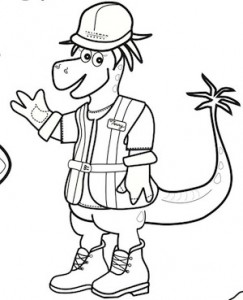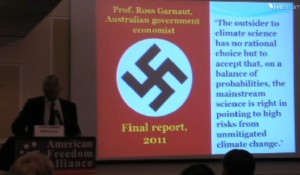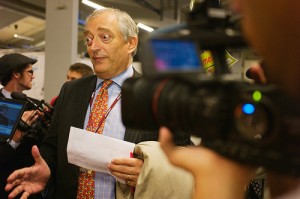IF you were going to have a serious high-level discussion about, say, improving science teaching in schools, then who would you invite to chair the meeting.
How about an astrologer? A purveyor of crystal healing, perhaps? Maybe a creationist, a fortune teller or a spiritual healer?
Well of course not. This would be ridiculous. But just hold that thought for a minute.
A few days ago, the Commonwealth Business Council brought its high-level bi-annual forum – hosted in Perth, Western Australia – to a close.
Among those in attendance were the Australian Prime Minister, senior Australian cabinet members, ministers from South Africa, the UK, Bangladesh, Nigeria, Rawanda and the Caribbean.
There were senior representatives from international energy and mining companies, including BP, Woodside, RioTinto, Shell and Hancock Prospecting.
With all of that power and influence in the one place, organisers promised that the meeting would likely spawn many multi-million dollar international business deals.
But the meeting also broke-up with the news that, among other things, it had failed to reach any kind of agreement on tackling climate change.
According to a report in The Australian, the London-based council’s director-general Mohan Kaul said this lack of an agreement was down to the “diverse views” of those businesses in attendance.
Mark Barnaba, the forum’s steering committee co-chairman, said the lack of consensus was “unsurprising”.
Indeed, this lack of agreement was unsurprising. Even an astrologer could have correctly predicted it.
The three-day forum had only one session devoted to the issue of climate change. Titled, “Tackling Climate Change and Energy Challenges: A Government Business Partnership” the session’s contributors included Australia’s Climate Change Minister Greg Combet and ministers from the UK, South Africa and Bangladesh.
I now ask you to recall those astrologers and fortune tellers, because the chair of the session was businessman Hugh Morgan, a denier of the science of human-caused climate change.
Quite how, or why, he was given this gig is almost as unfathomable in its stupidity as the idea that the motion of a distant planet can somehow influence whether or not I’m going to win at the lottery (which I’m not, because I don’t enter).
Morgan is a founder member and current president of the Lavoisier Group, launched in Victoria in 2000. The group was set-up chiefly to oppose any regulation on greenhouse gases.
In his latest “President’s Report” on the Lavoisier Group’s website, Morgan concludes: “We have been doing everything possible in recent years to destroy our coal-fired electricity industry in the superstitious belief that carbon dioxide is a pollutant.”
Also on the website, you can enjoy articles such as “Is the Western Climate Establishment Corrupt” and “Nine Lies About Global Warming”.
Hugh Morgan, 71, is also a former director at the Institute for Public Affairs, a free-market think-tank which promotes climate science denial and consistently attacks the efficacy of the renewable energy industry. He was also the former boss of the Western Mining Coproration.
Morgan, a former board member of the Reserve Bank and President of the Business Council of Australia, is currently a member of the lobby group Australians for Northern Development and Economic Vision, which wants to create a separate economic zone in the north of Australia with low-tax and low-regulation to promote mining industries.
ANDEV was established by Australia’s richest person Gina Rinehart, chairman of Hancock Prospecting and promoter of climate science denial. Rinehart has twice supported tours of climate “sceptic” Lord Christopher Monckton. Also an ANDEV member is climate sceptic and mining entrepreneur Professor Ian Plimer, who Rinehart passed-off as a climate expert in front of another influential audience earlier this year.
Morgan is also on the advisory board of the Tony Abbott-led Australian Opposition’s climate policy advisory board.
Putting a man like Hugh Morgan in a position of influence on climate change is a bit like.. well.. asking an astrologer how we should teach science to kids.
The act is irresponsible and the result will be highly predictable.










